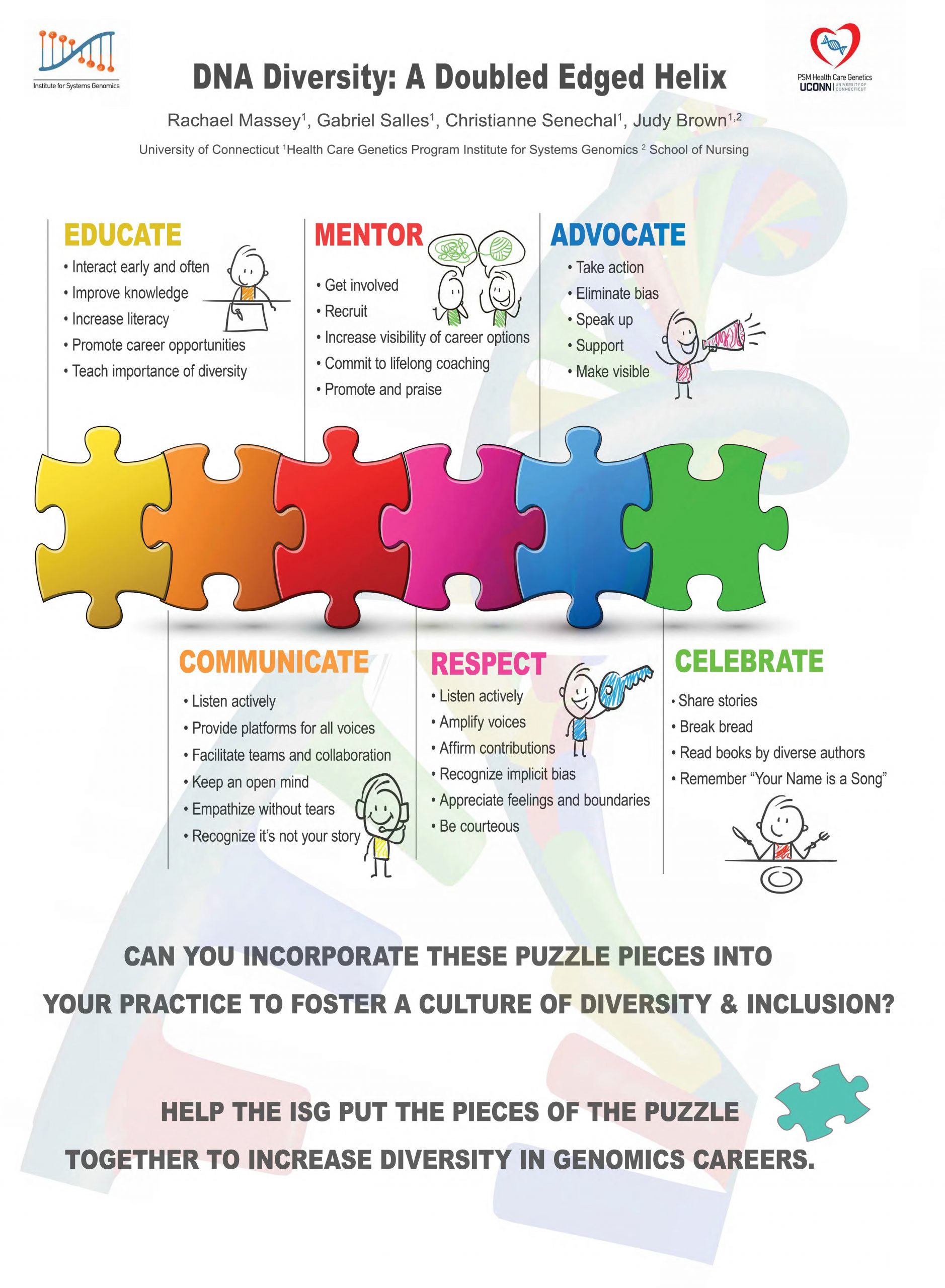The Institute for Systems Genomics fully supports the mission of the Office for Diversity and Inclusion (ODI) at the University of Connecticut. The mission of ODI is to advocate for access and equity across all university units, to welcome and celebrate the experiences of individuals regardless of background through innovative educational programs, and to transform campus climate to build a more welcoming and inclusive community.

Rachael Massey1, Gabriel Salles1, Christianne Senechal1, Judy Brown1,2
1 Institute for Systems Genomics, University of Connecticut
2 School of Nursing, University of Connecticut
Although DNA variants are associated with disease susceptibility and DNA variation can be leveraged among groups toward understanding health disparities; the double-edge of DNA variation is that genetic diversity is greater than the structure of this nucleic acid. Diversity in the training, research and application of genomics to health requires evaluation of an historical, inclusive, scientific and global perspective. Health Care Genetics Professional Science Master’s program students engaged in reflection and data collection about genetic diversity in science, policies, databases, and initiatives in the 2021 pilot of ISG 5095: Diversity and Inclusion in Genetics. Research data came from reviewing primary literature, editorials, and blogs, attending seminars and training, and conducting interviews with students, faculty, and genomics professionals. Interview candidates were selected from resource lists including those of UConn’s Center for Career Development and Office for Diversity and Inclusion. Some interviewees were referred or self-nominated in response to a listserv invitation. Speakers represented university, state, and national initiatives including the NHGRI, NIH’s All of Us, ASHG DEI Task Force, AETNA’s Health Care Opportunities Program, and UConn’s Health Disparities Institute as well as genetic counseling, research, education, nursing, diagnostics, and industry professions. Course outcomes included a diversity statement, a professional portfolio, and a poster presentation. Data presented is the students’ visualization of pieces instrumental to fostering a culture of diversity and inclusion within UConn’s Institute for Systems Genomics and for solving the puzzle of how to increase representation in the genomics profession. Can you fit these puzzle pieces into your professional practice?